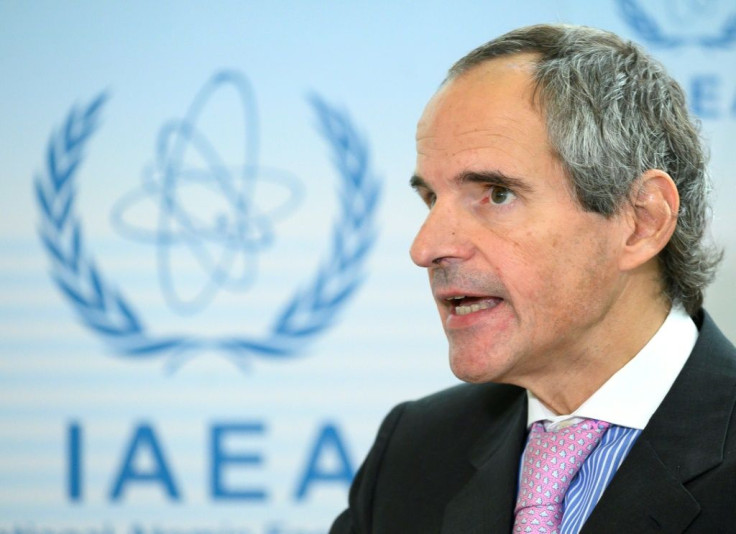Argentina's Grossi Elected Head Of UN's Nuclear Watchdog

Argentina's Rafael Grossi was elected on Tuesday to head the UN's nuclear watchdog, which is tasked in particular with monitoring the implementation of the increasingly shaky Iran nuclear deal.
Grossi beat Romanian diplomat Cornel Feruta to become director general of the International Atomic Energy Agency (IAEA) following the death of the former head Yukiya Amano of Japan in July.
The election of Grossi, Argentinia's ambassador to the IAEA, comes at a critical time for the Vienna-based agency as Iran is decreasing its commitments under the 2015 landmark deal.
US President Donald Trump last year withdrew from the agreement and proceeded to re-introduce sanctions, leaving Iran to press the remaining signatories to hold up economic benefits in return for its nuclear programme cutbacks.
Grossi received 24 votes to Feruta's 10 from the IAEA's 35-member Board of Governors in the third official round of voting, reaching the two-thirds majority needed to become the new director general, according to a diplomatic source.
"With Rafael Grossi securing a qualified majority in the board of governors, IAEA has taken a decisive step towards electing its director general," Xavier Sticker, the French ambassador to the United Nations in Vienna, said on Twitter.
An IAEA general conference is expected to approve the board's choice.
Feruta had been the organisation's acting director general since the death of Amano, who had led the agency since 2009.
'Broker for all'
Grossi, who becomes the first IAEA head from Latin America and is believed to have had the backing of the US, has said he wants to be "an honest broker for all" without a "hidden agenda".
"My approach with Iran will be very firm but very fair," the 58-year-old told AFP in a September interview.
Grossi, a seasoned diplomat, became Argentina's permanent representative to the United Nations in Vienna in 2013.
Prior to that he was at the IAEA from 2010, latterly as the assistant director general for policy and chief of cabinet.
Both Grossi and Feruta had been lobbying strongly for the post with two other contenders -- Lassina Zerbo of Burkina Faso and Marta Ziakova of Slovakia -- dropping out earlier in the race.
"I think Grossi's style would be to shake things up a little more," one diplomat told AFP ahead of this week's voting, describing the Argentinian as hard-working and engaged.
"You can't fault his work ethic," the diplomat added.
The IAEA is tasked with monitoring Iran's nuclear activities to ensure they abide by the terms of the 2015 deal known as the Joint Comprehensive Plan of Action (JCPOA).
Tensions have been escalating between Iran and the United States since May last year when Trump pulled out of the nuclear accord and began reimposing sanctions.
The remaining partners in the deal with Iran are Britain, China, France, Germany and Russia.
The European parties have repeatedly said they are committed to saving the accord, but their efforts have so far borne little fruit.
Tehran has already hit back three times with countermeasures in response to the US withdrawal from the deal.
On July 1, Iran said it had increased its stockpile of enriched uranium to beyond a 300-kilogramme maximum set by the deal, and a week later it announced it had exceeded a 3.67-percent cap on the purity of its uranium stocks.
In its latest move it fired up advanced centrifuges to boost its enriched uranium stockpiles on September 7.
© Copyright AFP {{Year}}. All rights reserved.





















